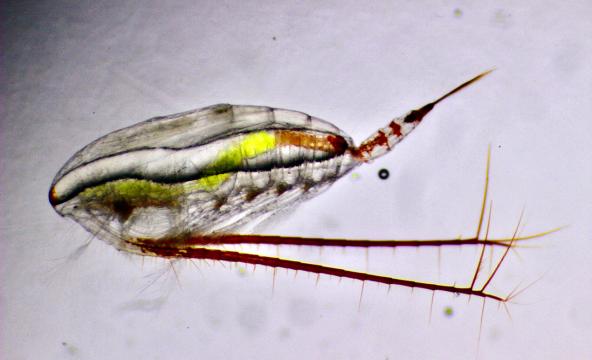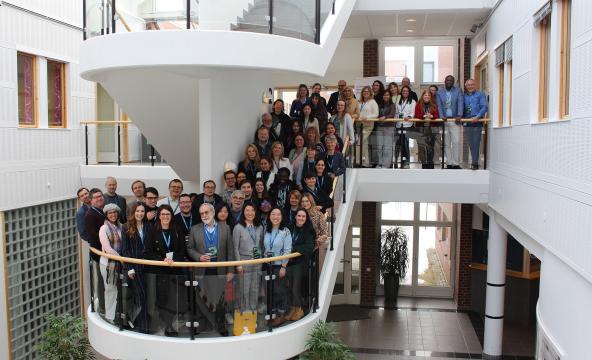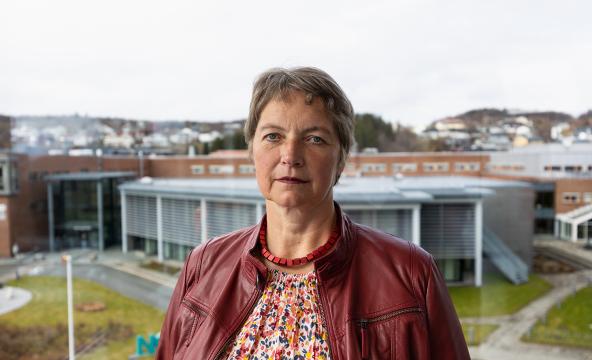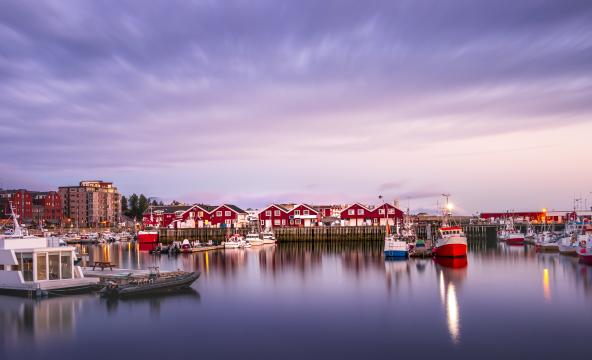

As a young girl in inland Poland, Roksana Majewska was at an early age determined to become a scientist.
As soon as she was of age, she moved to Gdansk to study marine biology. Thereafter she moved to Italy to complete her PhD, before she started working in South Africa. In the beginning of 2023, she landed a job at the Faculty of Biosciences and Aquaculture (FBA), Nord University in Bodø.
All in accordance with her wishes and plans.
– As an inexperienced graduate student, I tried to say “yes” to all opportunities coming my way to work towards a degree and learn as much as I could. After a while I became pickier and started looking for the kind of work and life I wanted. It has been a dream of mine to work at a small university in the Arctic, she says.
Deteremined
It has also been a dream of her to work with the ocean.
– I studied Oceanography in Gdansk to become a marine biologist. The ocean fascinates me because of the wide range of yet undiscovered species and habitats. I keep telling my students it is like space exploration but way cheaper and, as of now, more relevant for humanity. And, is there anything more exciting than discovering unknown life forms?, she asks.
Today, Majewska holds a position as a postdoc at the FBAs Algae and Microbial Biotechnology Division. Her aim is to, one day, start her own lab researching poorly explored marine microbes.
Prizewinner
It is obvious, she has already done good work. This was made clear earlier this year when she received two international awards.

The Marie Sklodowska Curie and Norma J. Lang Fellowships awarded to her will help on this way. Both come with funds as well as career possibilities.
– The awards are prestigious and come with funding for my research. They are, therefore, important to both myself and Nord University. As scientists, we are used to failure and critique, and with the insanely high competition in academia, such distinctions always come as a surprise, she says with a smile.
Last June, Majewska traveled to the USA to receive the Norma J. Lang Fellowship.
A perfect match
Nord university was a perfect match for Majewska.
– As a marine microbiologist, I need access to advanced technology and equipment. Among other things, advanced microscopes. Most small universities in remote locations do not have those. But Nord university’s scientists are already conducting high-impact research in microbes, and new departments are being built as we speak. Thus, I see a lot of potential for long-term studies on topics that interest me most, she says.
One of her favorite work days, is to look at the microscopic algae that can only be seen in an advanced microscope.
– Fieldwork is fun, but when it comes to microbes, it is in the lab where the discoveries happen. My neck hurts, but I love it, she says – revealing that she got to choose her work office.
– I got to choose between campus Bodø or Mørkved Bay Research Center. I choose the bay, because I want to be near the sea, where I can hear it and smell it.

– I love the nature in Bodø
She loves to live and work in Bodø.
– Getting older and having travelled a lot, I was able to refine that dream of being a scientist. We (scientist) tend to believe that the best that could happen to us would be Cambridge, Harvard or any other of the top-ranking universities. However, at those high-achieving institutions, the level of stress, competition, and pressure of constant productivity is far greater than what one would consider “inspiring” or “motivating”. I have learnt from my mistakes, go informed, and chose Bodø and Nord University because the passion for work alone does not protect us from burnout. Meaningful science requires not only expensive machinery but also time and space for so-called deep thinking and creativity, and I feel that here at Nord, those needs are acknowledges and understood, she says.
The work ethics and work law in Norway are well known to her. As it insures workers a certain amount of leisure time and holiday.
– I find it soothing to be able to hike in the area, even if it is just a short walk to my office. Not only do I get time to do this. It is also safe for me to hike on my own – something every introvert would appreciate. I feel very grateful and lucky to be here, she says.









